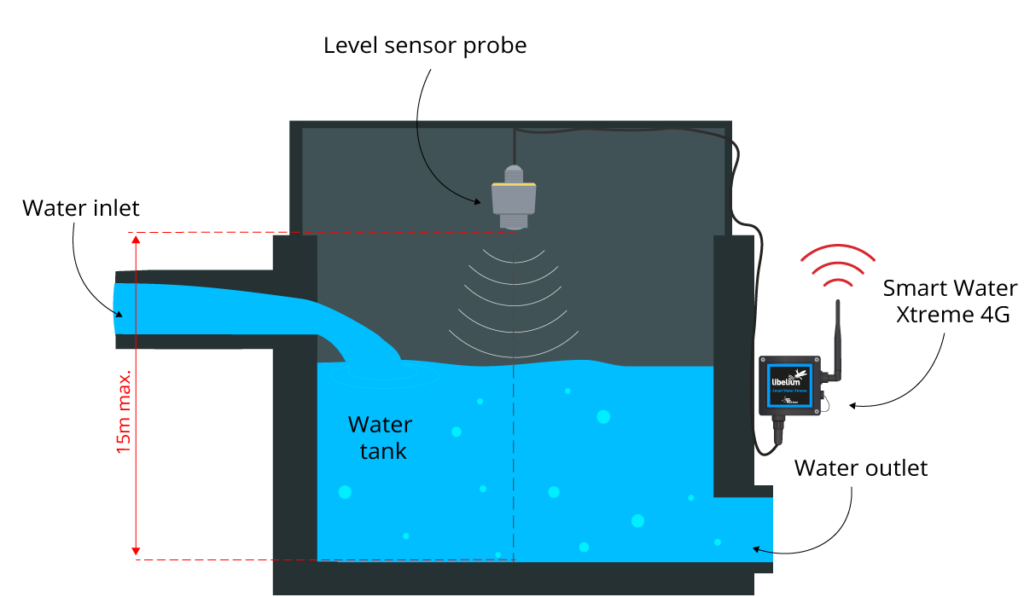
As water scarcity becomes an increasingly pressing global issue, efficient management of water resources is critical. In this context, smart sensors are emerging as game-changers, particularly in the realm of water storage tank management. These advanced technologies not only enhance operational efficiency but also promote sustainability and conservation in water use.
What Are Smart Sensors?
Smart sensors are advanced devices equipped with various technologies, including Internet of Things (IoT) capabilities, to monitor and manage water storage tanks in real time. These sensors can measure parameters like water level, temperature, pressure, and even water quality indicators such as turbidity and pH levels. By collecting and analyzing this data, smart sensors provide actionable insights that can optimize water storage management.
Benefits of Smart Sensors in Water Storage Management
Real-Time Monitoring
One of the most significant advantages of smart sensors is their ability to provide real-time data on water levels and quality. This constant monitoring helps prevent overflows and dry runs, which can lead to significant losses. For instance, if a tank is nearing capacity, the system can alert operators to take necessary actions, such as diverting water or increasing consumption.
Predictive Maintenance
Smart sensors enable predictive maintenance by continuously analyzing data to identify potential issues before they escalate. For example, if a sensor detects unusual fluctuations in pressure, it may indicate a leak or malfunction. Early detection allows for timely interventions, reducing the risk of costly repairs and service disruptions.
Improved Water Quality
Maintaining water quality is crucial for public health and environmental sustainability. Smart sensors can monitor water quality parameters, such as chemical composition and biological contaminants, ensuring that water remains safe for consumption and use. If any parameter exceeds safe thresholds, alerts can be triggered, enabling prompt remediation actions.
Enhanced Efficiency
The integration of smart sensors leads to more efficient water management. Automated systems can optimize the filling and distribution of water, ensuring that tanks are used effectively without unnecessary waste. This efficiency not only conserves water but also reduces energy consumption associated with pumping and treatment.
Data-Driven Decision Making
The data collected by smart sensors can be analyzed to inform strategic decisions. Water utilities and managers can track usage patterns, assess the effectiveness of conservation measures, and identify trends over time. This data-driven approach facilitates better planning and resource allocation, ultimately leading to improved service delivery.
Case Studies: Successful Implementation
Several municipalities and organizations have successfully implemented smart sensor technology in their water storage management systems. For instance, a city in California introduced smart sensors to monitor its water tanks, leading to a 30% reduction in water waste. The real-time data allowed the city to quickly respond to leaks and optimize its water distribution strategies.
Another example comes from agricultural operations, where farmers have begun using smart sensors in their irrigation tanks. These sensors monitor water levels and soil moisture, allowing farmers to irrigate their crops more efficiently and conserve water. The result has been not only cost savings but also enhanced crop yields.
The Future of Water Management
As technology continues to evolve, the role of smart sensors in water storage tank management is expected to expand. Integrating these systems with artificial intelligence and machine learning can further enhance their capabilities, enabling even more sophisticated predictive analytics and automation.
In conclusion, smart sensors are revolutionizing water storage tank management by providing real-time monitoring, predictive maintenance, and improved water quality. As water scarcity becomes an ever-growing concern, these technologies will play a crucial role in promoting sustainability and efficiency in water resource management. By investing in smart sensor technology, communities can ensure a reliable and sustainable water supply for generations to come.


